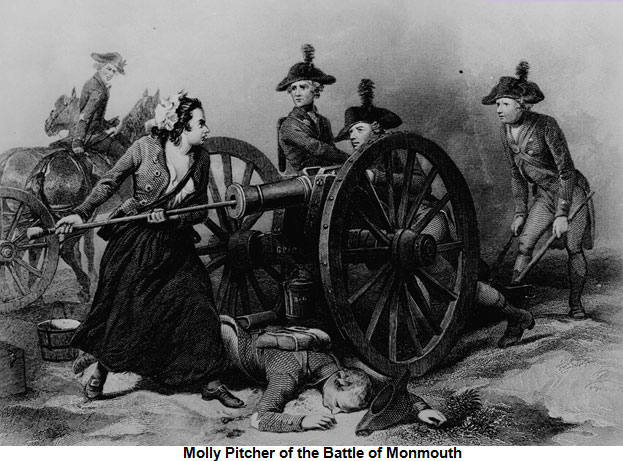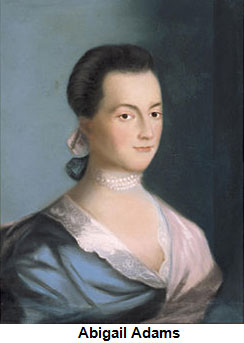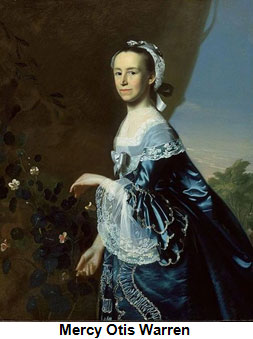
Source: Molly Pitcher at the Battle of Monmouth, J.C. Armytage, National Archives

Source: Molly Pitcher at the Battle of Monmouth, J.C. Armytage, National Archives
The picture above features Molly Pitcher at the Battle of Monmouth. Examine the picture closely and answer the following questions in your notes.
"Molly Pitcher" is a nickname given to the women who carried water to the soldiers. Since women were denied the same rights as men in the colonies, their names were sometimes left out of the important accounts of the American Revolution.
However, there were specific women who had a great impact on the American Revolution.

Source: Abigail Adams, Benjamin Blythe, Wikimedia Commons
In a time when it was unpopular for women to be involved in political matters, Abigail Adams made a political impact. She was married to John Adams, a Revolutionary leader, and as her husband became more active in the Revolution, the couple communicated by exchanging more than 1,100 letters, many of them about the current political state. Adams expressed her concerns about how the future government would treat women.
This is a quote from one of her letters to her husband: (Note: the spelling of some of the terms reflects the era in which it was written.)
"I long to hear that you have declared an independancy-and by the way in the new Code of Laws which I suppose it will be necessary for you to make I desire you would Remember the Ladies, and be more generous and favourable to them than your ancestors."
→ Reflection: What did Abigail Adams mean by "Remember the Ladies?" What was she expecting her husband to do?

Source: John Singleton Copley, Wikimedia Commons
A resident of Plymouth, Massachusetts, Mercy Otis Warren was an active patriot who, along with her husband and brother, led meetings about politics in her home. Warren was an author, poet, and playwright. Her plays and poems criticized the English government. Warren wrote a play called The Adulator which she published anonymously.
Another extraordinary woman who participated in the American Revolution was Polly Cooper. Cooper was a member of the Oneida Indian tribe. Cooper played an important role at Valley Forge, where George Washington and his troops endured a harsh winter. She cared for sick soldiers. During battle, Cooper would go to the soldiers to bring them water. Many credit her care of the soldiers as a cause of Washington's troops surviving Valley Forge.